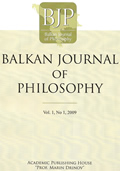Trust, Social Capital, and Social Well-Being (Values and Power Relations in the Late Modernity)
Trust, Social Capital, and Social Well-Being (Values and Power Relations in the Late Modernity)
Author(s): Ivan KatzarskiSubject(s): Philosophy
Published by: Институт по философия и социология при БАН
Keywords: trust; social capital; culture; power; capitalism; democracy; modernity
Summary/Abstract: The aim of this paper is to analyze Robert Putnam’s and Francis Fukuyama’s theses and the views of many other their adherents about trust and social capital. At the beginning, basic concepts are defined, and a brief characterization of the arguments is offered. But in its major part, the article is critical. Firstly, a series of empirical research results are presented, which do not go together with and are even in direct contradiction to the points of the ideas under discussion. Secondly, an analysis is offered, presenting their theoretical setbacks: exaggeration of the role of trust and “free associations” in economic and political life, which in its turn leads to reversing causal relationships and concealing real problems; incorrect use of the idea of culture and the values linked to it where major parameters of power relationships remain concealed.
Journal: Balkan Journal of Philosophy
- Issue Year: II/2010
- Issue No: 1
- Page Range: 69-78
- Page Count: 10
- Language: English

